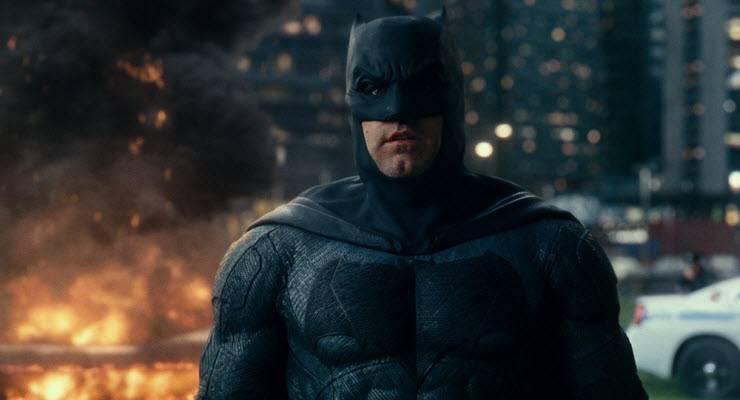
It’s a bird! It’s a plane! It’s corporate synergy!
While Australia’s media organisations are being mercilessly gutted, with Channel 10 and Nova being the latest to “future proof” their businesses by cutting staff this week (presumably heading toward a February 2021 goal of one terrified intern running the whole thing from home), it’s worth noting that job cuts are terrible all over. Even for superheroes.
The merger of Time Warner and AT&T was so unpopular that the US Justice Department attempted to stop it happening. But it was eventually finalised after several court cases in 2019 — just in time for the pandemic-afflicted economy to melt down and the assumed rivers of sweet, sweet superhero money AT&T thought they’d get from Warner’s ownership of the DC Entertainment brand to evaporate faster than hype for this year’s actually pretty great Harley Quinn movie. (Seriously, it’s worth a rent).
This week it was announced there would be a wave of cuts. That reportedly includes 600-odd people on the Warner side, including a third of those employed at DC Comics and seemingly everyone who was working on their much-hyped streaming service which would now appear to be as dead as a Green Lantern cinema franchise.
And while Rocksteady Games are about to unveil their long-anticipated Suicide Squad game, made by the same team which did the universally beloved Batman: Arkham trilogy, word is that AT&T are pretty keen to offload the entire DC Games division altogether — which should make for a really vibey launch party.
Yes, dear reader: not even Batman can survive this epoch in economic history. And that guy is loaded!
Beautiful one day, scandalous the next!
SA Premier Steven Marshall is really doubling down on his recent embrace of entirely avoidable dramas by choosing to take a little break with the fam in Queensland even as his government was admonishing South Australians for even considering non-essential travel to the state.
You might recall that Marshall’s been presiding over a factional war inside the SA Liberals, helped along by a series of scandals that ended the ministerial careers of at least one prominent conservative and the addition of exactly zero right-wingers to the reconstituted frontbench. This little Sunshine State idyll fits neatly into the Marshall “stop hitting yourself” basket.
South Australia’s borders are still closed to most of the country, which you might not have realised because certain sections of the media haven’t been going on and on and on about how uneconomic and unconstitutional and dictatorial it is. And if you’re wondering why SA’s harsh border protections are different to those in Queensland and WA, it’s definitely nothing to do with SA being a Liberal state, no no no no no.
Police Commissioner Grant Stevens had made an announcement on July 31 advising “South Australians considering travel to and from Queensland [should] assess their need to travel against the implications of possible increasing restrictions in the future … to prevent a second wave of COVID-19, it is possible travel restrictions may be imposed in the future which will result in people entering from Queensland being required to undergo mandatory testing and self-quarantining for 14 days upon arrival.”
Marshall countered this by explaining that he was going up for his son’s graduation and also that you’re not the boss of him. “Certainly my travel was perfectly legitimate,” he told InDaily. “It meets all the requirements. And we do need to have travel — we’ve got a lot of people involved in the travel sector, so we’ve got to have travel both ways.”
So there you have it, South Australians. Assess your non-essential need to travel, and also totally support the travel sector. We’ve got to have it both ways.
Coalition fights Coalition over Coalition’s uni policies
It would be terribly unfair to suggest that the current federal government has something against universities.
Sure, the Morrison government has gone to considerable lengths to ensure that unis are not eligible for JobKeeper, forcing a series of massive cuts to staff and services. And then Education Minister Dan Tehan announced that namby-pamby humanities subjects would be deliberately made more expensive in order to encourage folk into courses with clearer paths to employment — courses which are more expensive to run and which universities are concerned the newly-discounted fees won’t cover without non-existent extra funding.
Still, anyone who might see this as being an ideological battle rather than good policy is clearly the sort of ivory tower academic leftist Marx-loving book lover that would be able to spell “ideological”.
Besides which, there’s someone in there fighting for universities: the, um, Nationals?
Yes, the Coalition party that’s occasionally about regional Australia is in there fighting for unis. Well, some of them. OK, specifically, for regional universities who have seldom had it great.
Nationals Minister for Decentralisation and Regional Education Andrew Gee is contradicting his Liberal counterpart by arguing that more courses should have their fees reduced (particularly social sciences courses in things like social work and mental health disciplines).
Fun fact: there’s zero evidence that fee differentials make students decide on one course over another, since what people study has a lot more to do with what someone’s Year 12 marks were, what subjects they took, and what’s available to be studied at all. But sure: quibble about that some more, feds.
Just in case you think this is driven by a zeal for giving country kids the best possible education, the Nats are also pretty keen to ensure that students in regional areas don’t go getting highfalutin’ ideas about heading to broader opportunities in those wicked cities, by removing the proposed Tertiary Access Payments, a $5000 grant made available to regional students relocating for study.
If trapping country students by the powers of economics is what it takes to stop them becoming smart-arse city slickers, then so be it.








Is it possible that “students decide on one course over another” based up their interests & abilities?
Not sure that a frustrated humanities type would be much of an engineer or physicist – all those nasty numbers & hard facts not amenable to identity intersectionality.